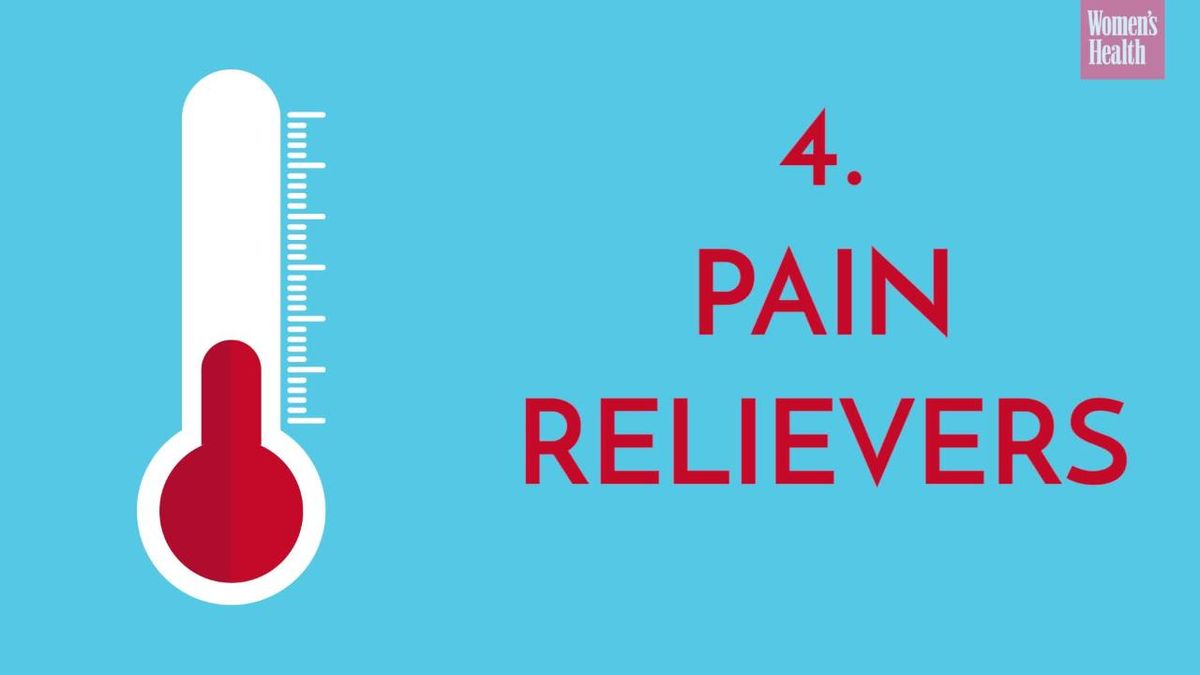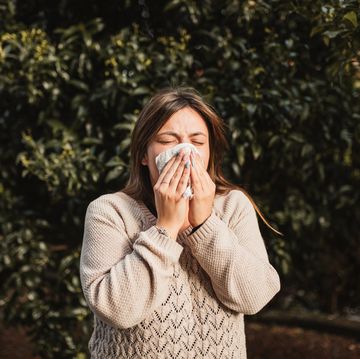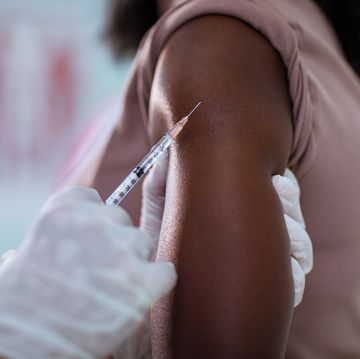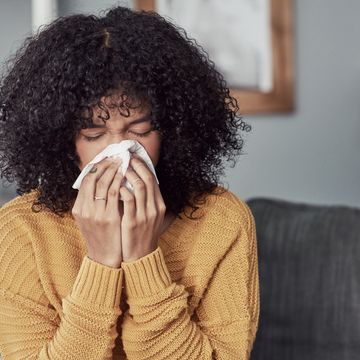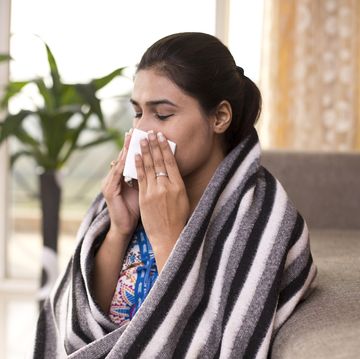Pretty much everyone is obsessed with the flu right now, and with good reason—it’s everywhere (and it seems like it's even more deadly than usual this year). But if you start to come down with flu-like symptoms, it’s important to know this: You might not actually have the flu.
People are regularly mistaking symptoms of the flu with adenovirus, a viral condition that also can cause a runny nose, cough, sore throat, breathing problems, fever, headache, and diarrhea, per CNN. But unlike the flu, there’s not a vaccine for adenovirus—at least, not one that’s available to the general public, says infectious disease expert Amesh A. Adalja, M.D., senior scholar at the John's Hopkins Center for Health Security. An adenovirus vaccine does exist, but it’s currently only offered to people in the military, Adalja says.
Feeling sick? Try these cold and flu remedies:
Related: Scary! This STD Is Becoming Impossible To Treat
However, a new report published this week in Emerging Infectious Diseases, a weekly journal published by the Centers for Disease Control and Prevention, suggests that there’s benefit to using the vaccine for everyone, especially people who live in close quarters like college students, kids at summer camp, and people who live in long-term care facilities.
What Is Adenovirus?
While you may have never heard of adenovirus before, it’s actually a pretty common illness, per the CDC. The virus can cause a range of issues like the common cold, sore throat, bronchitis, pneumonia, diarrhea, and even pink eye.
Given that the flu can also cause a sore throat, cough, fever, headache, and diarrhea, it can be tough for people—and even doctors—to tell it apart from the flu, Adalja says. There's a molecular test for adenovirus, but most doctor's don't have access to it—and the only way they can distinguish between the two in their office is if they give you a rapid flu test and it comes back positive for flu, he says. (The rapid flu test isn't totally accurate, which means a negative result doesn't necessarily mean you don't have the flu.)
Related: 'I Drank Lemon Water Every Day for 2 Weeks—Here’s What Happened'
To lower the odds that you’ll get adenovirus, Adalja recommends washing your hands frequently and trying to steer clear of people with a cough, if possible. “It’s really the same thing as with influenza except there is no vaccine,” he says.
How To Treat Your Symptoms
If you think you’ve come down with adenovirus, you shouldn’t panic. “For the vast majority of people, it’s the common cold,” Adalja says. And, while that’s not exactly fun, it’s luckily not super serious. If you feel like your infection is progressing and you have symptoms like a higher-than-usual fever than you can’t break or difficulty breathing, call your doctor. There’s no set treatment for adenovirus, but your doctor will likely recommend treatments for your individual symptoms. (Unfortunately, antibiotics won’t work in this case because adenovirus is a viral illness.)
The good news: Your symptoms will probably clear up in a few days.

